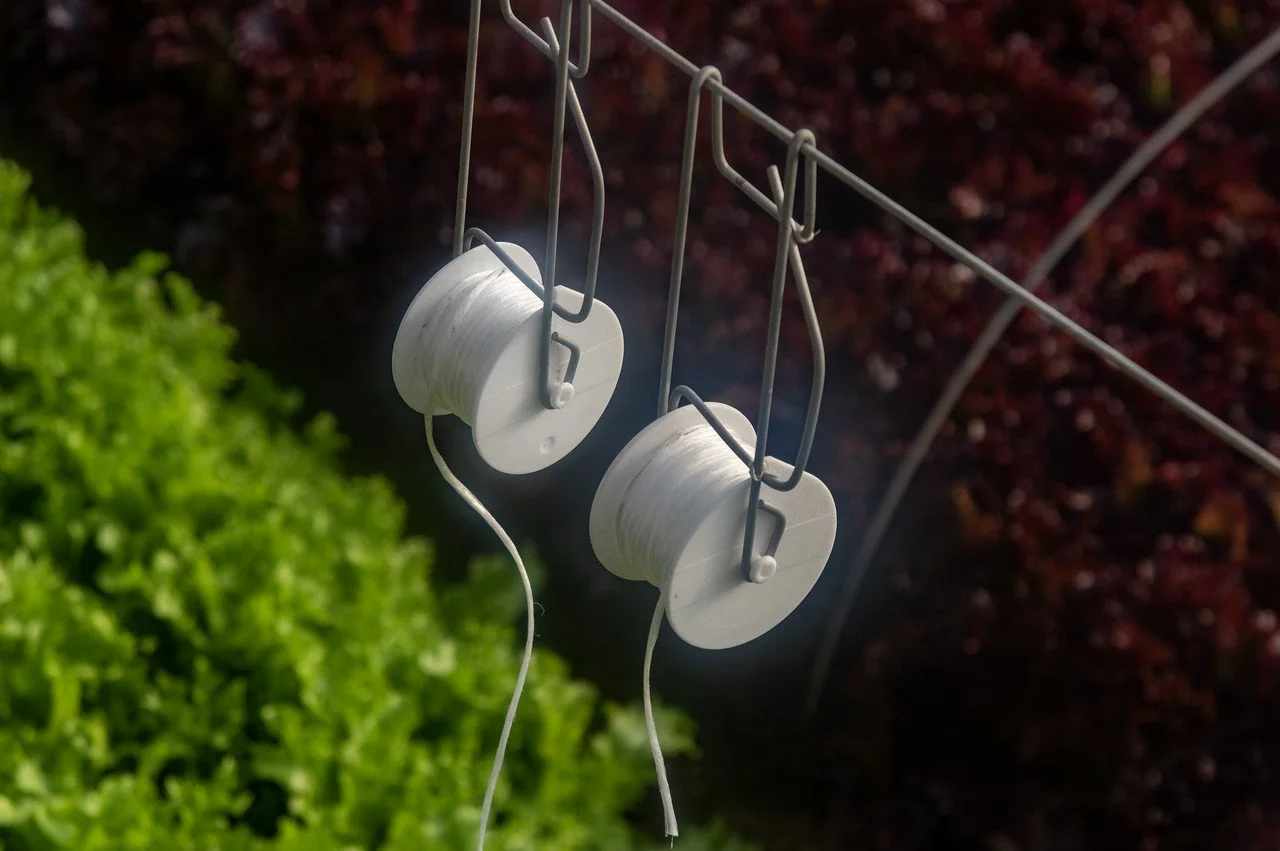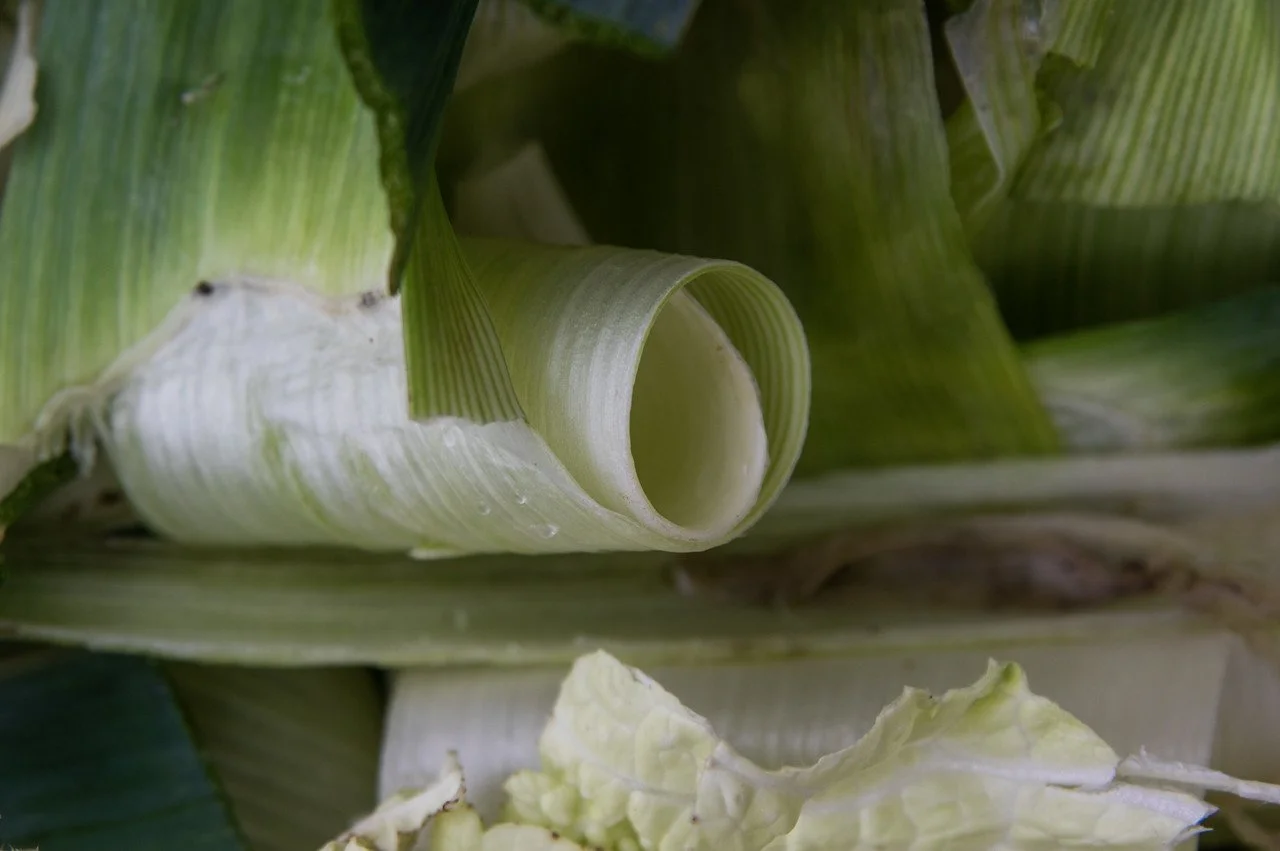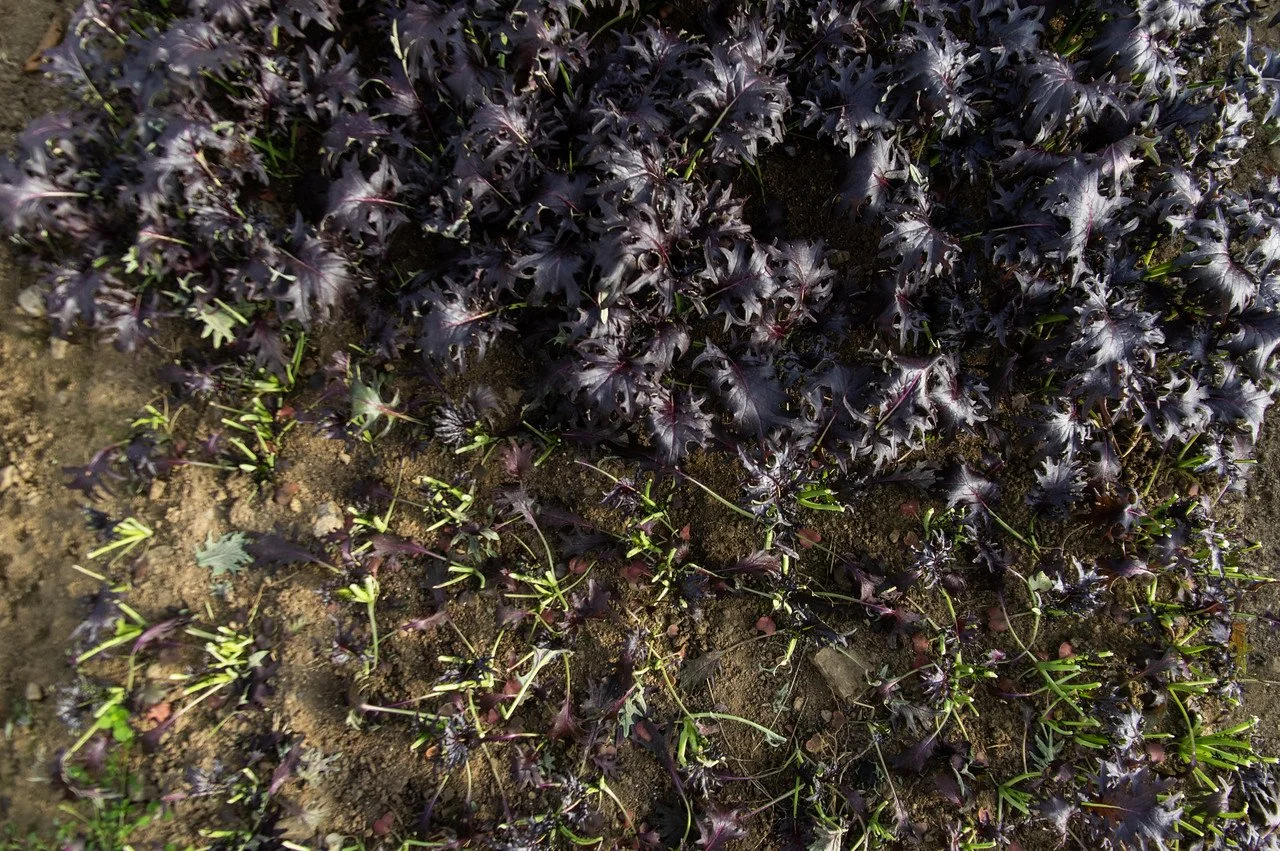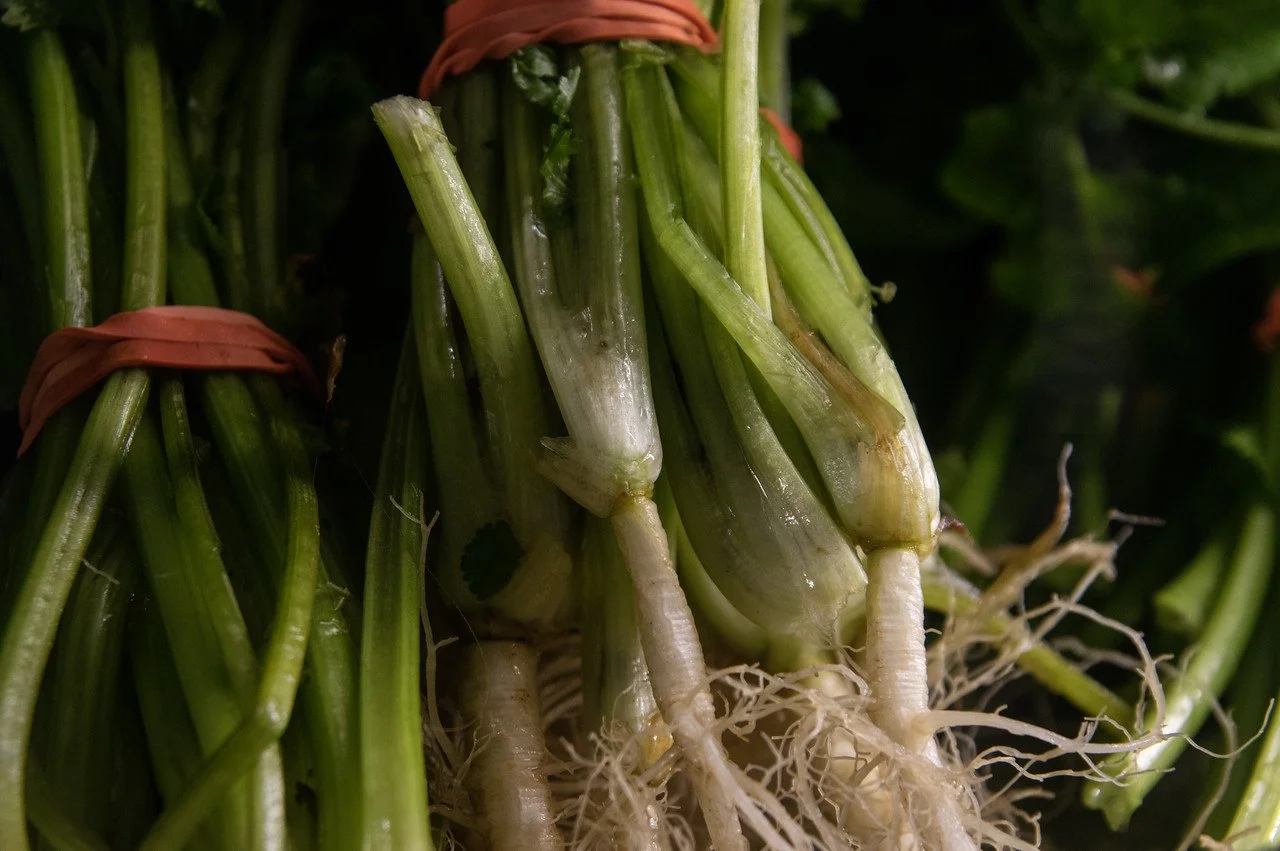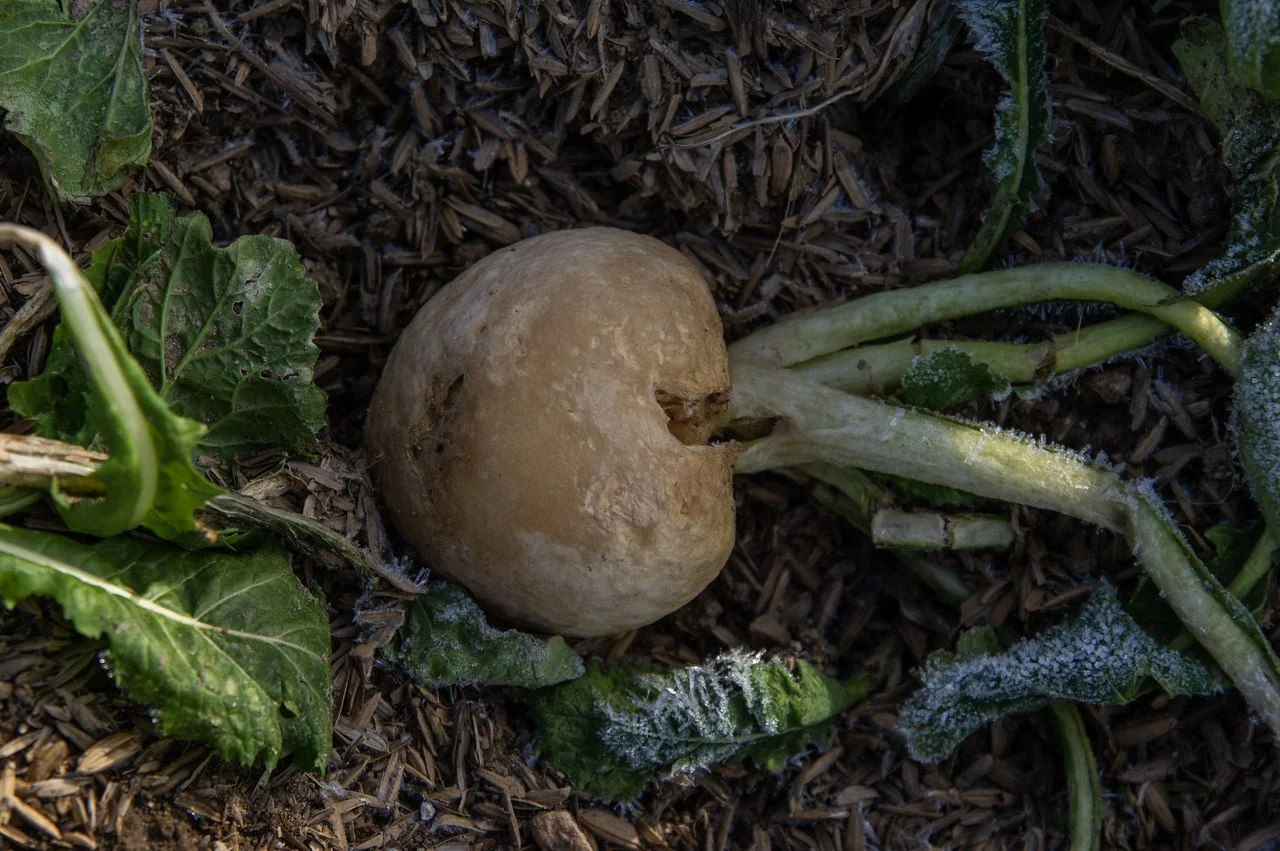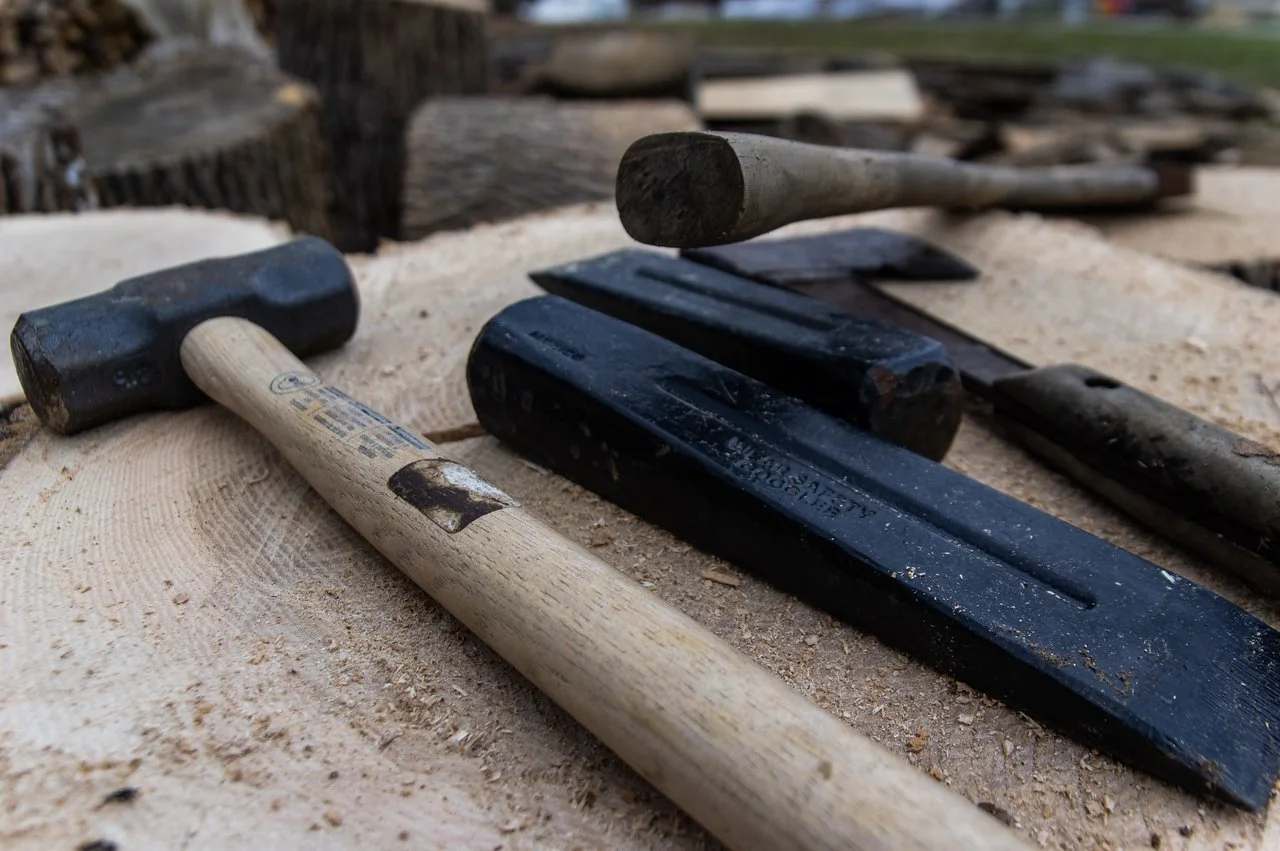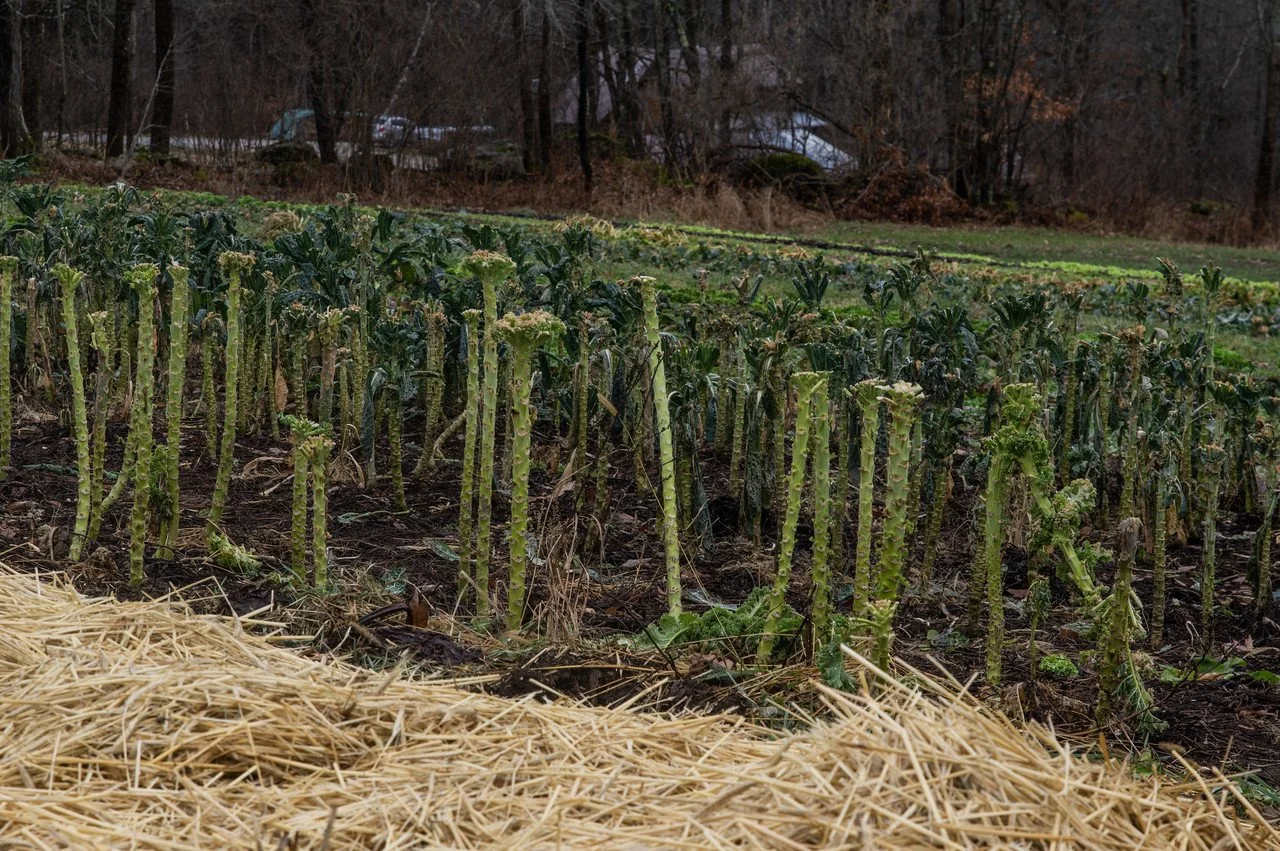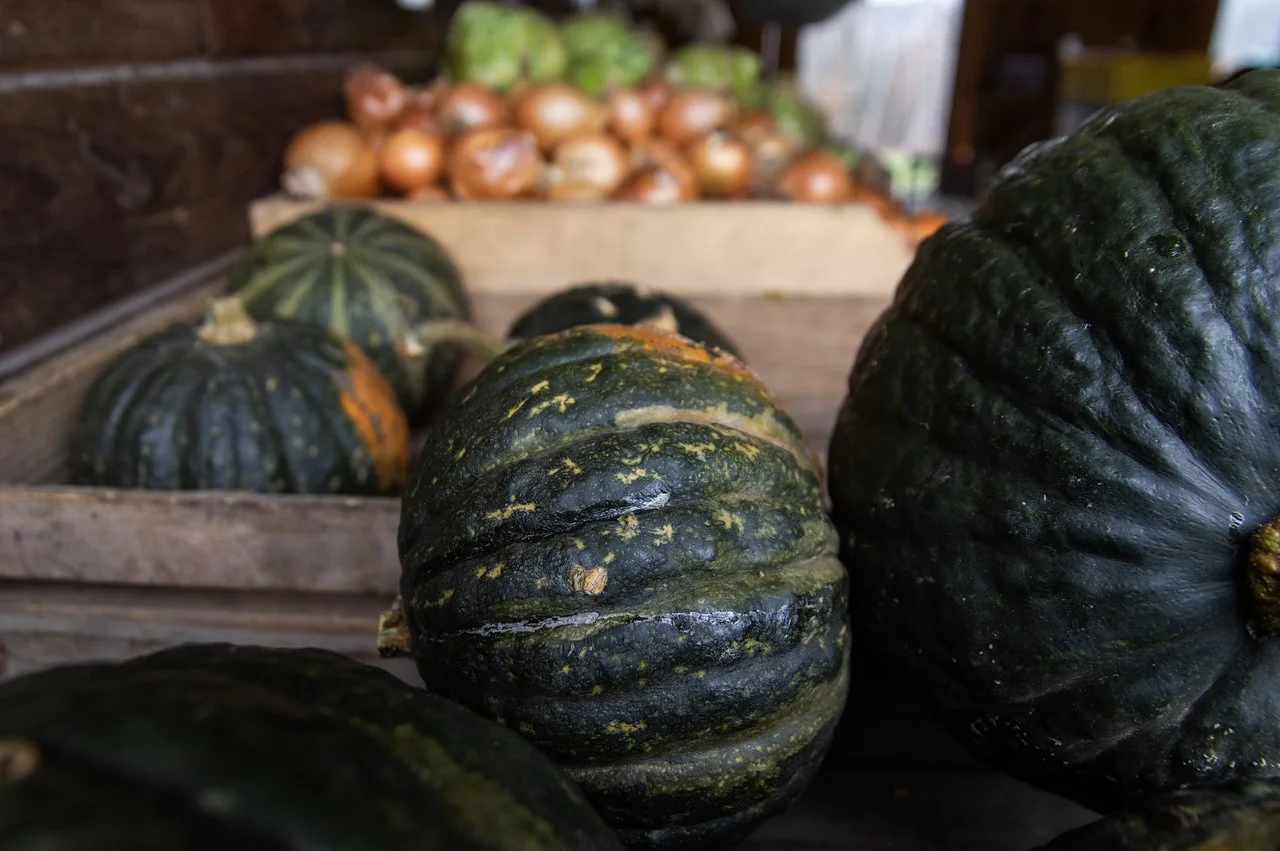8th Week of the Fall CSA season: Week of December 14th
Galen, Taylor, and Katie starting spinach harvest, photo by Adam Ford
CSA Balance Due
If you haven’t already paid, your balance is due. You can pay online through your account, mail a check to Evening Song Farm 48 Nice Road, Cuttingsville VT 05738, or leave a check in the CSA cash box at the barn. It’s very cool to pay in smaller chunks, just let us know what your payment plan is. You can also email or call us to pay with EBT.
If you get an auto email about a balance due, either pay that, or reach out if you think it’s wrong. It helps reduce our computer work load if payments are taken care of when a notice goes out. Thanks!
growing tip in a chard plant, photo by Adam Ford
Tokyo Bekana among the baby red kale, photo by Adam Ford
This Week’s Availability
This week we will have leeks, green kohlrabi, cilantro, baby lettuce, mini lettuce heads, spinach, claytonia, baby bok choi, green curly kale, rainbow chard, parsley, red beets, yellow beets, carrots, garlic, yellow onions, purple and white daikon radishes, baby kale, mesclun mix, green napa cabbage, watermelon radish, salad turnips, celeriac, green cabbage, red and yellow potatoes, and glass gem popcorn* (on the cob).
*We grew two types of grain corn this year, and this second one is gorgeous with beautiful bright pastel kernels. We took the kernels off the cob and popped them in our air popper, and they made a lovely, almost nutty popcorn. You can also pop them over the stove or in a brown bag in the microwave. We kept it simple with just a bit of salt and nice olive oil after it was popped, it was fun! If you choose this item, you will be reomving the kernels from the cob at home. (Don’t be daunted by it…we do it by hand, too.)
Ordering closes at noon on Tuesdays for Wednesday bags, and at midnight on Wednesdays for Friday bags.
You do not need to fill out the form if you plan to come to the barn on Wednesdays or Thursdays to pick out your items yourself.
roller hooks for tomato trellises hang above the baby lettuce in the tunnel, photo by Adam Ford
bunches of green curly kale soak in the first wash tube before being moved to the next, photo by Adam Ford
Farm News
This week Cindy and Ryan kept working away at setting up the new building work space. It will be really great to have a new, slickly organized space for the work we do, and all the supplies and tools we need for the various projects of growing veggies. When we moved this operation up form the old spot after Irene over a decade ago, it was a hectic move, getting everything quickly out of the place to sell it, and still while juggling the daily operations of growing veggies. We have never really set up some of our work spaces well like we would like to because it was just kind of a chaotic whirlwind, so it feels encouraging that’s happening.
The team harvested the last of the leeks from the field, and they are all stored in the root cellar now, cleaning up what we need each week for distribution.
Food policy is on my mind: This week I was chatting with a friend who is the produce manager at a large natural food store in Rochester, NY, and he was mentioning that some of the wholesale prices that he is paying to bring certian produce into the store has risen so high, his store just can’t stock it. (The farmers he works with in that region don’t grow many winter greens, so this time of year a lot of the fresh produce gets sources from California for that store; so understandably with shipping costs, some items are just too expensive to expect consumers to buy.) I also read a quick little opinion piece about how food policy needs to change for people to be able to eat healthier. If you don’t read the article, the gist is that it’s not easy for eaters to “eat healthier” with the food choices that are available to most consumers right now. (Though in Vermont we are incredibly lucky to have some of the most local food options per capita in the country, which often, but not always means we have more healthy and less processed options.) Perhaps the section in the article that hits on an area of food policy that I am passionate about is: “Rectifying the gross historic injustices in US land distribution, which has historically disadvantaged or shut out farmers of color, women and queer farmers, and encouraging new farmers to grow good food well, is also a critical step. None of this is, as critics argue, a return to more primitive methods of farming, but a recognition that a blend of modern technology and good policy would support farming that serves the worlds’ citizens, not its corporations.” There are so many completely broken parts to our food system that it’s hard to even rattle them off in a coherant list, but we need to reimagine a completely new national food policy instead of letting the destructive and failed policies of Earl Butz limp along in today’s world. Earl Butz was the Secretary of Agirculture in the 50s, and again in the 70s, who in brief terms crafted policies for farms to “get big or get out.” The commodity subsidies from that time period are still a cornerstone of our food system; it’s time to phase those out and subsidize healthy, fresh food, and ecological land management that preserves our topsoil resources in a climate changing world. If you are also passionate about this stuff, stay up to date with NOFA VT about the policy work they push forward. Anyway, these musings of an opinionated small veggie farmer can ramble for awhile, but instead….
Have a great week!
ESF Team: Ryan, Kara, Galen, Taylor, Molly, Cindy, Katie, K2, Sky and Soraya
Weekly Recipe
leaf by leaf, photo by Adam Ford
If you want to be inspired by something this week, it’s this woman: K2 has been back at work farming with us for a bit now, for a day each week, after just over 5 months from her mountain biking accident (in which she broke so many bones in her neck, back, foot, etc, that I forget the actual count at this point)… she has literally been putting one foot in front of the other at the prescribed pace of her doctors and ran her first mile this week since her accident. (It doesn’t hurt that she found the perfect chard leaf that matches her jacket and smile during harvest this week.) So cool to have you farming again, K2! photo by Galen Miller
bins and bins of it, photo by Adam Ford
dirty leeks before cleaning them up, photo by Adam Ford
outer dirty, broken leek leaves peeled away, curled up in the compost, photo by Adam Ford
harvesting baby kale, photo by Adam Ford
weighing some Napa for a small order, photo by Adam Ford
Ryan washing spinach, photo by Adam Ford
cilantro bunches, photo by Adam Ford
window on the new building, photo by Adam Ford
frosted clover cover crop, photo by Adam Ford
this photo of an unmarketable watermelon radish that has started the decaying process, freezing in the field, to return to the soil made me think about all these unsung heroes in the veggie world. For every lovely veggie we get to harvest and send out, there are always ones whose job is just to decompose in place and feed all the soil critters and microorganisms…. Adam does a good job of taking pictures of everything around here… and it’s cool to recognize what is behind the scenes of the nice veggies, photo by Adam Ford
tools by the splitting station, photo by Adam Ford
pick your own herb signs waiting for next year’s garden, photo by Adam Ford
fully harvested green curly plants, photo by Adam Ford
so in that vein, here’s another field worker… a field damage squash that wasn’t harvested and left in place to rot in the field… which obviously became an all you can eat buffet for a lucky grey squirrel…. gorgeous colors, some of those seeds will find their way into the soil and become volunteers wherever they land, photo by Adam Ford
last week’s tetsukabuto, photo by Adam Ford




